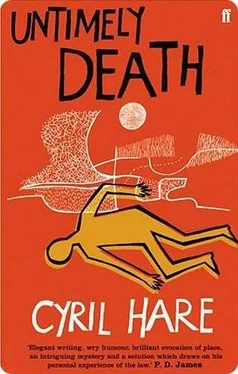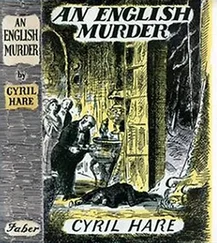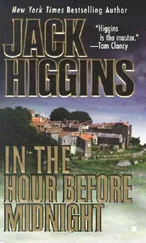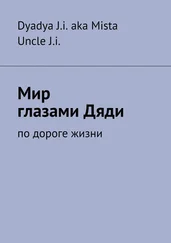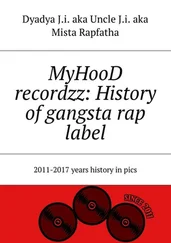Cyril Hare - Untimely Death aka He Should Have Died Hereafter
Здесь есть возможность читать онлайн «Cyril Hare - Untimely Death aka He Should Have Died Hereafter» весь текст электронной книги совершенно бесплатно (целиком полную версию без сокращений). В некоторых случаях можно слушать аудио, скачать через торрент в формате fb2 и присутствует краткое содержание. Жанр: Детектив, на английском языке. Описание произведения, (предисловие) а так же отзывы посетителей доступны на портале библиотеки ЛибКат.
- Название:Untimely Death aka He Should Have Died Hereafter
- Автор:
- Жанр:
- Год:неизвестен
- ISBN:нет данных
- Рейтинг книги:3 / 5. Голосов: 1
-
Избранное:Добавить в избранное
- Отзывы:
-
Ваша оценка:
- 60
- 1
- 2
- 3
- 4
- 5
Untimely Death aka He Should Have Died Hereafter: краткое содержание, описание и аннотация
Предлагаем к чтению аннотацию, описание, краткое содержание или предисловие (зависит от того, что написал сам автор книги «Untimely Death aka He Should Have Died Hereafter»). Если вы не нашли необходимую информацию о книге — напишите в комментариях, мы постараемся отыскать её.
Untimely Death aka He Should Have Died Hereafter — читать онлайн бесплатно полную книгу (весь текст) целиком
Ниже представлен текст книги, разбитый по страницам. Система сохранения места последней прочитанной страницы, позволяет с удобством читать онлайн бесплатно книгу «Untimely Death aka He Should Have Died Hereafter», без необходимости каждый раз заново искать на чём Вы остановились. Поставьте закладку, и сможете в любой момент перейти на страницу, на которой закончили чтение.
Интервал:
Закладка:
We would add that this letter is written on the advice of Mr. Manktelow of counsel (who is, we believe, personally known to you) and that he has further advised us to secure your attendance, if necessary, by sub poena ad testificandum. We trust, however, that you will not oblige us to resort to this expedient.
With apologies for troubling you in this matter, we remain,
Your obedient servants,
Harkness, Fitzgibbon, Blandy amp; Co. ”
Eleanor read the letter through twice before handing it back.
“I don’t see what this has got to do with the Southern Bank,” she remarked.
“Oh, they’re only in the action because they’re trustees or executors of a will, or something like that. I’m not worrying about them.”
“Then all this nonsense about deceased and predeceased. I don’t understand it.”
“I understand only too well. Gilbert Gorman died on -I forget the date, but it was a Sunday-the day I was laid up in bed at Sallowcombe. At least-obviously one must be careful in these matters-that was the day the news of his death came to Sallowcombe. But from what I overheard on the telephone, I think we can assume he did die on that Sunday.”
“And Jack died on Monday night or Tuesday morning. That’s what the coroner said. Isn’t that final?”
“Obviously it isn’t, as someone is trying to get the Chancery Court to say something different.”
“Why should they?”
“There could be quite a number of reasons for that. Suppose Jack was Gilbert’s next of kin, for instance… No, it can’t be quite as simple as that. But does it matter? The point is, someone is trying to prove that Jack died first.”
“But I thought we’d decided that he didn’t. I mean…”
There was an embarrassed pause before Pettigrew spoke again.
“Has it occurred to you,” he said, “what sort of a figure I should cut in the witness-box, explaining to a Chancery judge that I had been indulging in- what did you call it?- precognition?”
“But if that’s what you had been doing-”
Pettigrew put his coffee cup down with a clatter.
“I’ve been quietening my conscience all this time by telling myself that it didn’t matter,” he said. “Jack’s body turned up in due course and the coroner sat on him and no harm was done. Now it seems that it does matter, and harm may have been done. It’s a judgment on me for shirking my plain duty as a citizen and trying to hide behind a lot of psychological mumbo-jumbo. I’m going to be made to look ridiculous, and serve me right.”
“But, Frank, is anybody going to believe your story against all the other evidence? Surely it’s much more likely that you should have been mistaken than everyone else?”
“If my evidence stood alone, this case would never have been brought. Obviously, it doesn’t. That’s where Mallett’s ham comes in. He’s the man responsible for the whole business, and the ham was his way of apologizing for landing me in this mess.”
“Really, Frank! You’re imagining things.”
“I’m certainly not. I’m beginning to remember them, though. The day after the inquest, Mallett said he had to go to Wiveliscombe. He didn’t go in his own car. Someone called for him. The next day he was out all day. I thought at the time that he was sheepish and silent about where he’d been and what he was doing. It’s perfectly obvious. He was the only available person with the knowledge and the intelligence to ferret this matter out. Someone took him to see these solicitors at Wiveliscombe and from then on he was employed by them to cook up this case. He must have felt rather uncomfortable having us in the house all the time.”
“I thought he seemed quite relieved when we went,” Eleanor remarked. “That would explain it. But that was nearly six months ago. Why has it taken all this time to bring it to court?”
“All this time? Good heavens, woman, this is a Chancery suit. It’s the nearest thing to greased lightning in my experience. What I can’t make out is how it has got to this stage so quickly.”
CHAPTER XIII. Re Gorman, Deceased
To a layman, there is probably little to choose between the various courts of law that are to be found in the vast Gothic pile at the eastern end of the Strand. They vary somewhat in size, but, large or small, they are alike in their dingy livery of grey stone and fumed oak, in their austerely uncomfortable furnishings, in their lancet windows, ingeniously designed to exclude any stray shaft of light that might wander into this quarter of London. To the connoisseur, however, distinctions, invisible to the outsider, leap to the eye. To him, the difference between a Court of Queen’s Bench and one of Chancery is as obvious and as pronounced as the difference between Oxford and Cambridge.
Pettigrew was a common law man to the marrow of his bones, and when, a few weeks later, he pushed open the door of Chancery Court VI, he wished with all his heart that it was Queen’s Bench Court IV just round the corner. The whole atmosphere was alien. The very usher’s shoes squeaked equity. For all the superficial familiarity of his surroundings, he felt a stranger in a strange land.
At least, there were plenty of familiar faces in the body of the court. Not without surprise, he saw Mrs. Gorman sitting in a corner near the back. Her quiet, patient face seemed in some way altered, but he could not determine in what the change consisted. He looked round for Mr. Joliffe, and found him in the opposite corner, at the furthest possible remove from his daughter that was consistent with sitting in the same row. They were ignoring one another’s presence with an intensity possible only to close relations. Further forward, just behind counsel’s seats, was Tom Gorman, stiff and uncomfortable in a new suit. Sitting with Tom was another, smaller man with a strong family likeness to him. He was whispering to a man with a bright-red west-country complexion whom Pettigrew took to be the solicitor from Wiveliscombe. Then Mallett appeared silently in the doorway and padded quietly down to take his seat behind Tom. Mallett seemed out of place in these surroundings. Still more so did the man who followed him-a plain-clothes policeman if ever Pettigrew saw one.
The stage seemed to be set. Pettigrew, waiting patiently for the curtain to go up, wondered what the play was to be about. He had forfeited the opportunity of finding out, because, from a mixture of motives which he had never brought himself to analyse, he had declined Mr. Fitzgibbon’s pressing invitation to give him a proof of his evidence. He was attending obedient to his subpoena to testify in a cause the nature of which he could only guess. Even the parties were uncertain. The cause list stuck up in the corridor outside the court told him that the Plaintiff was Gorman, R. P., and the initials meant nothing to him. He derived a certain amusement from the situation.
Manktelow came in, talking to another counsel, evidently his opponent, whose face was unfamiliar to Pettigrew. While his clerk deposited on the desk in front of him a formidable brief and half a dozen volumes of Law Reports, he looked round the court and caught Pettigrew’s eye. But before he could do more than smile his recognition, the door at the back of the bench was opened, and the court rose as Mr. Justice Pomeroy entered to take his seat.
“May it please your lordship,” said Manktelow. “In this case I appear on behalf of the Plaintiff, Mr. Richard Petherick Gorman, who is a party interested in the settlement to which I shall have to refer your lordship in a moment. My learned friend Mr. Twentyman appears for the Southern Bank Ltd., who are the trustees of the settlement and the first Defendants in the action. The second Defendant, Mrs. Edna Mary Gorman”-he lowered his voice to break the shocking news-“she, my lord, is not represented. She has entered an appearance but taken no further part in the proceedings. She appears here in person.”
Читать дальшеИнтервал:
Закладка:
Похожие книги на «Untimely Death aka He Should Have Died Hereafter»
Представляем Вашему вниманию похожие книги на «Untimely Death aka He Should Have Died Hereafter» списком для выбора. Мы отобрали схожую по названию и смыслу литературу в надежде предоставить читателям больше вариантов отыскать новые, интересные, ещё непрочитанные произведения.
Обсуждение, отзывы о книге «Untimely Death aka He Should Have Died Hereafter» и просто собственные мнения читателей. Оставьте ваши комментарии, напишите, что Вы думаете о произведении, его смысле или главных героях. Укажите что конкретно понравилось, а что нет, и почему Вы так считаете.
